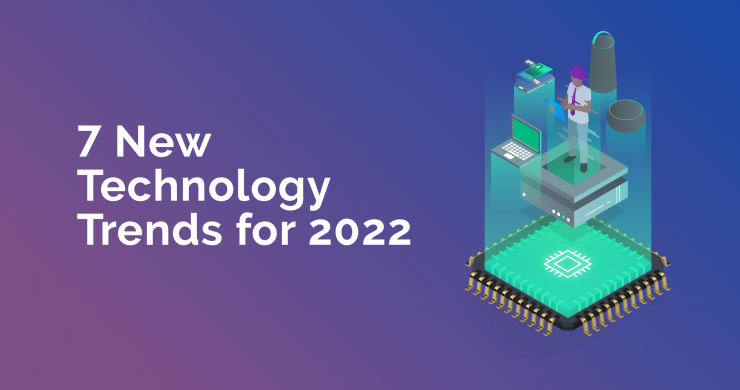Using A.I. to Accelerate Success: 2021 Automation Predictions

In what has been one of the most unexpected and challenging years in recent memory, we’ve seen unparalleled levels of innovation. Businesses worldwide have been forced to accelerate their digital transformation within a matter of months and made significant investments into advanced technology to stay operational and competitive.
A recent study has found that in the wake of the pandemic, 80% of digital leaders across industries had planned to accelerate their efforts, with an additional 65% expecting to increase the amount they’re already investing.
With such monumental changes occurring within a matter of months, we can expect the coming year to bring many more. Read on for our 2021 automation predictions and what businesses can expect for their future digital transformations.
Wrapping up 2020
This year, automation adoption has risen to unprecedented levels due to businesses adapting to the pandemic. Shortly before the pandemic, the global automation market was set to hit $10 billion US and reach USD 16.3 billion in 2025, with this number likely to reach much higher now. Additionally, a McKinsey report found that almost half of executives surveyed had ‘moderately’ accelerated their use of automation as a direct result of the pandemic.
By automating areas across businesses such as back-office operations, customer service systems, and many more, organizations have been able to not only adapt to the pandemic but advance their businesses further.
Let’s see how 2021 is expected to take this years’ AI acceleration even further.
Looking forward to 2021:
A.I enabled process automation will replace RPA
Robotic Process Automation (RPA) is an off-the-shelf automation technology that is capable of carrying out a range of specific tasks. It has been discussed widely over recent years, but now demands are changing.
With an increased need for automation with a wider range of capabilities, an off-the-shelf solution is no longer enough. Businesses must adopt automation that is catered to their exact business needs and can make process decisions.
They need custom A.I. enabled process automation (a.k.a Intelligent Automation).
A Forrester article reported that in 2021, Intelligent Automation suites will take over one-quarter of all RPA solutions. The specialized capabilities of Intelligent Automation, enable businesses to generate value with highly predictable and measurable results, leading to higher ROI as a result.
Automation will become essential
Before the pandemic, companies were heavily focused on efficiency and productivity within the office. From innovative office design to agile workflows, many businesses focused on making their place of work as productive as possible.
But then 2020 happened and things had to change, fast.
With an increased urgency for remote working, systems needed to work outside of the office. Automation was implemented across many business areas: from financial automation to automated customer triage service and more.
Looking forward to 2021 and beyond, businesses will likely need to implement automation as a necessity, rather than an extra advantage. No longer will it be a ‘nice to have’ addition to the business, but they will surely fall behind their competitors if they fail to adapt early on.
A.I. enabled process automation will remove the need for in-person IT and HR interactions
The forced shift to working from home is here to stay, with Forrester reporting that 21% of global IT workers will work remotely all or most of the time.
To support these workers, A.I. enabled process automation will become key. Within IT departments, this can help with troubleshooting and triage issues.
In the HR department, automation will be able to support remote workers by responding to employee benefits questions, supporting with documents filed, and delivering enhanced customer service.

What do the next 5 years look like?
- Automation Architects: The widespread use of automation across industries is set to trigger a growing need for automation architects. A Gartner study found that by 2025, over 90% of large enterprises will require dedicated automation architects to help them manage and maintain their automation projects.
- Normalization of automation: widespread use of A.I. enabled process automation and robotics will be near 100% across many areas by 2025, according to a prediction made in a Pew Research article. It’s likely that by then, automation will have seamlessly integrated into many parts of our daily lives.
- Lowering of operational costs – By 2024, organizations will reduce their operational costs by up to 30% by combining automation technologies with redesigned operational processes, according to Gartner.
The challenges of 2020 have greatly accelerated the use of automation in organizations around the globe, and it’s not set to slow down in 2021. Automation will continue to be implemented in many areas of business in a post-pandemic world to deal with new ways of working and to keep up with industry trends.
Ready to explore automation options within your organization? Download our free ebook to discover how to start your journey:

Get the latest roundup of the most important, interesting and stories from the past week. In your inbox every Saturday by 10am.
Related Articles you might like
Free Your Finances with Intelygenz: Transforming Traditional Banking into a Digital Powerhouse
The relentless advance of digital transformation across sectors presents unique challenges and opportunities for the financial industry.
View Blog PostVASS signs an agreement to acquire INTELYGENZ, a Spanish company specialized in Artificial intelligence
VASS Group announces it has reached an agreement to acquire the Spanish deep-tech company headquartered in San Francisco. Intelygenz, a […]
View Blog PostThe 7 biggest technology trends for 2022 and beyond
Every business wants to get—and stay—on top of technology, and it changes fast. Whether you’re an IT Executive or a […]
View Blog Post

